#offshore oil
Link
Months after the Bay du Nord offshore oil project in Newfoundland was approved by the federal government, environmental groups are continuing their campaign against the project, taking their fight to the courts and the company's offices in Norway.
Opponents of the project hope that Equinor, the company leading the project (oil major BP has a minority stake) will be especially sensitive to growing climate concerns over fossil fuel production, because it is a state-owned Norwegian company accountable to the country's citizens.
Equinor has yet to make a final investment decision on moving ahead, and environmental groups are focusing their efforts on that upcoming milestone. Led by environmental law charity Ecojustice, they have gone to federal court for a review of its environmental approval of the project.
"Our federal government says that it understands climate science," said Ian Miron, staff lawyer at Ecojustice. "So it should understand that Canada can't be a climate leader and approve fossil fuel infrastructure projects like this one."
Continue Reading.
Tagging: @politicsofcanada
#Newfoundland#Newfoundland & Labrador#Offshore Oil#cdnpoli#canada#canadian news#canadian politics#canadian#Norway#Justin Trudeau
57 notes
·
View notes
Text
Chicago, Jan. 31, 2024 (GLOBE NEWSWIRE) -- The global Offshore Support Vessel Market size is projected to grow from USD 22.6 billion in 2023 to USD 31.4 billion by 2028, at a CAGR of 6.7% according to a new report by MarketsandMarkets™.
#offshore support vessel#offshore support vessel (OSV)#offshore support vessel market#offshore vessel#offshore supply#offshore energy#offshore oilfield#offshore oilrig#offshore oil and gas#offshore oil#offshore drilling#offshore oilwell#offshore platform#offshore decommissioning#offshore pipeline#offshore wind#offshore rig#offshore company formation#offshore outsourcing#offshore#energy#energia#oilfield#oil and gas industry#oilfields#oil and gas#oil#oil well
0 notes
Text
[The Washington Post] Meet the whale that may upend the offshore oil industry
https://www.washingtonpost.com/climate-environment/2023/09/26/whale-gulf-mexico-rices-oil/
0 notes
Text
The global Offshore Decommissioning Market is projected to reach USD 8.0 billion by 2027 from USD 5.2 billion in 2021 at a CAGR of 7.4% according to a new report by MarketsandMarkets™.
#offshore decommissioning#Offshore Decommissioning Market#offshore companies#offshore outsourcing#offshore services#offshore drilling#offshore#offshore oil rig#offshore development company#offshore oil#offshore oil and gas#offshore drilling rigs#offshore wind#offshore wind power#offshore wind farm#offshore developers#energy#oil and gas#oil and gas industry#offshore energy#oil#oil and gas companies
0 notes
Text

#zebulun#deuteronomy 33:19#offshore oil#issachar#suck the abundance of the seas#daily bread#nightly bread#god is love#bible
0 notes
Text
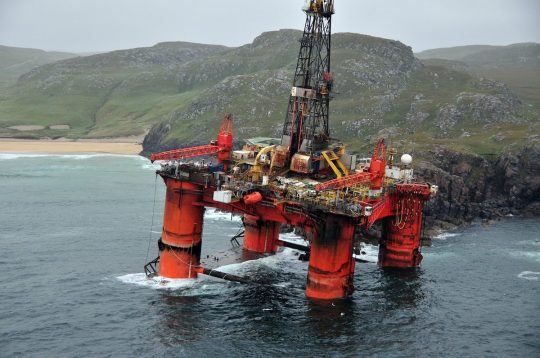
Transocean Winner aground on the Isle of Lewis in Scotland
#Transocean#Winner#offshore drilling platform#drilling platform#oil drilling#exploration#oil#energy#Scotland#infrastructure
106 notes
·
View notes
Text
Excerpt from this story from the New York Times:
Political and corporate leaders have pledged to reduce planet-warming emissions to net-zero by 2050. But oil companies like Shell are betting that the world will need oil and gas for decades to come. To serve that demand, they are expanding offshore oil and gas drilling into deeper and deeper waters, especially here in the Gulf of Mexico.
Offshore production, oil executives argue, is not only crucial to power cars, trucks and power plants but also better for the planet than drilling on land. That’s because such operations emit far less of the greenhouse gases that are warming the planet than producing the same amount of oil and gas on land, according to industry estimates.
“The world will continue to need oil, by the way, even in 2050,” Wael Sawan, chief executive of Shell, said in a recent interview. “It will have to be lower and lower emissions.”
The greenhouse gas emissions associated with extracting a barrel of oil from the Gulf of Mexico are as much as a third lower than emissions from producing a barrel of oil from fields on U.S. soil, according to a report published last year by the National Ocean Industries Association, an industry group for offshore oil, gas and wind businesses. (Those numbers do not include the emissions created when fossil fuels are burned in engines or power plants, which are much greater than emissions from producing and refining oil and gas.)
Oil production in the Gulf of Mexico fell for several years after the 2010 Deepwater Horizon explosion caused the worst offshore oil spill in U.S. history. But the gulf’s oil output has been rising over the last decade. The renewed interest in offshore production is part of a larger trend: The United States has recently set records for oil production, extracting more crude than any other country.
Booming oil and gas production in the United States has alarmed climate activists and scientists who want the energy industry to pivot more quickly to cleaner fuels and technologies like wind and solar power and electric vehicles.
“We’re not talking about stopping oil production today,” said Brettny Hardy, a senior lawyer in the Oceans Program at Earthjustice, a nonprofit environmental law organization. “But no matter how you look at it, there’s a really dire need to accelerate this shift to clean energy. The things the industry is doing now is not going to help that transition.”
7 notes
·
View notes
Text
Climate action groups are vehemently rejecting the Biden administration's claim that the approval of a new offshore oil terminal—planned to be the largest in the U.S.—is in the "national interest," after the U.S. Department of Transportation announced the project had met several federal requirements and could begin operations by 2027.
The agency's Maritime Administration said last week that Enterprise Product Partners, a Houston-based pipeline company, had been granted a deepwater port license to build the Sea Port Oil Terminal (SPOT) near Freeport, Texas following a five-year federal review process.
The federal government determined the $1.8 billion terminal project had undergone sufficient environmental impact reviews and would overall benefit the country—even as it was projected by the Sierra Club, which has fought SPOT for several years, to emit greenhouse gases equivalent to those of nearly 90 coal-fired power plants.
"The evidence is clear that SPOT would be catastrophic to the climate, wildlife, and frontline communities of the Gulf," said Devorah Ancel, senior attorney with the Sierra Club. "It threatens the future existence of the endangered Rice's whale with a population of less than fifty, and its ozone pollution would compromise the health of thousands of Gulf residents who have endured decades of fossil fuel industry pollution. Make no mistake, SPOT is not in the national interest."
The project is expected to include two pipelines that would carry crude oil to the deepwater port each day, enabling the export of 2 million barrels of crude oil, loaded onto two supertankers at once, daily.
"Nothing about this project is in alignment with Biden's climate and environmental justice goals," said Kelsey Crane, senior policy advocate at Earthworks. "The communities that will be impacted by SPOT have once again been ignored and will be forced to live with the threat of more oil spills, explosions, and pollution. The best way to protect the public and the climate from the harms of oil is to keep it in the ground."
#enviromentalism#ecology#us politics#biden administration#oil industry#offshore drilling#Sea Port Oil Terminal#freeport#texas#oil pipeline
2 notes
·
View notes
Text



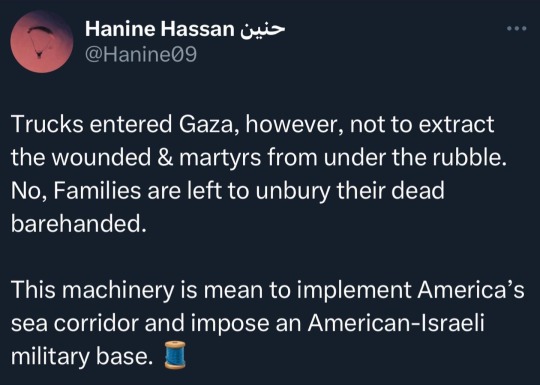
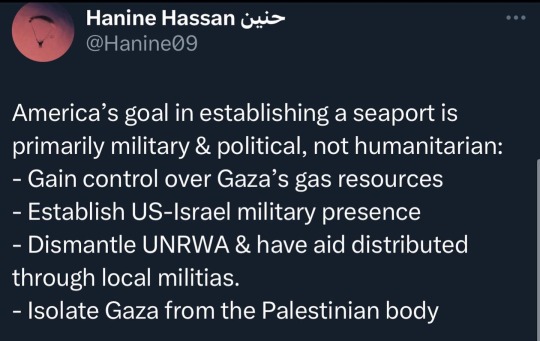
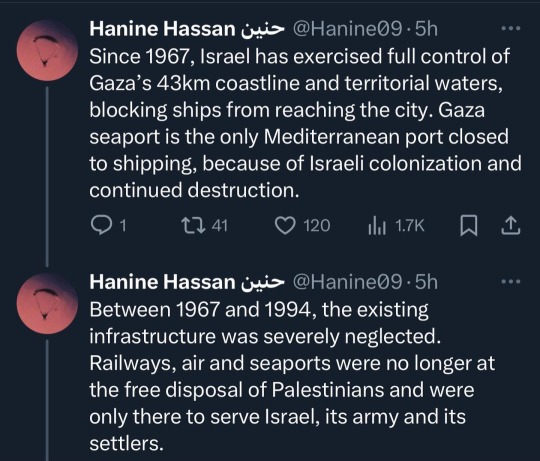
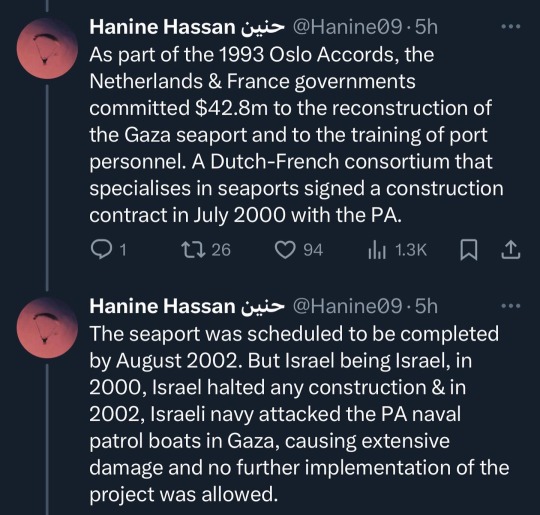

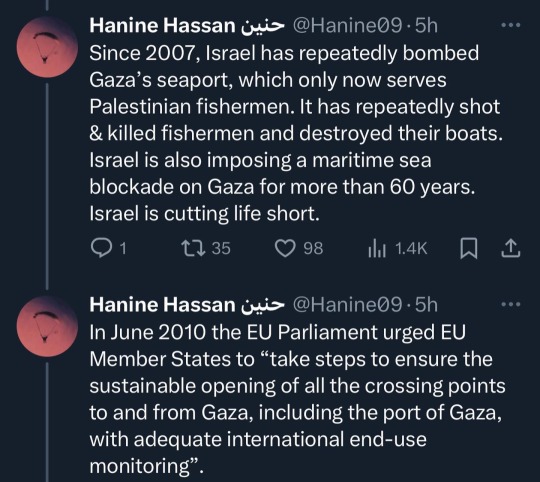
#gaza marine offshore field#fossil fuels run the world in more ways than one#gaza under siege#people are literally starving to death but all thats getting in are construction equipment#nothing but more lies#pandering#apartheid#save palestine#ethnic cleansing#israel is an apartheid state#seek truth#free palestine 🇵🇸#genocide#illegal occupation#israel is committing genocide#israeli war crimes#rafah crossing#blood for oil#its all a front for drilling#from the river to the sea palestine will be free#starvation#humanitarian crisis#propaganda kills#spread awareness#seek the truth and share it#blockade#maritime window
6 notes
·
View notes
Text
Monel Sheathing: Enhancing Corrosion Resistance in Offshore Structures
Offshore structures face a myriad of challenges, with one of the most formidable being the corrosive forces unleashed by the marine environment. In the relentless battle against corrosion, engineers and designers turn to innovative solutions, and one material that has proven its mettle in this arena is Monel. This nickel-copper alloy, celebrated for its exceptional corrosion resistance, finds a…

View On WordPress
#Corrosion#Drilling Rif#Jacket Structure#marine environment#Monel Sheathing#Offshore Structures#Oil Platform#Pipelines#Platform#process platform
2 notes
·
View notes
Text
The global Offshore Support Vessel Market is projected to reach USD 31.4 billion by 2028 from USD 22.6 billion in 2023 at a CAGR of 6.7% according to a new report by MarketsandMarkets™. An offshore support vessel (OSV) is specially designed to support offshore exploration, drilling, production, and construction activities in the oil & gas industry.
#offshore oil and gas#offshore decommissioning#offshore drilling#offshore company formation#offshore outsourcing#energy#energia#Offshore support vessel#Offshore support vessel market#osv#osv market#Offshore vessel#Offshore rig#offshore#offshore oilfield#offshore oilrig#offshore energy#offshore oil#offshore wind
0 notes
Text
The global Offshore Support Vessel Market is projected to reach USD 31.4 billion by 2028 from USD 22.6 billion in 2023 at a CAGR of 6.7% according to a new report by MarketsandMarkets™.
#offshore companies#offshore outsourcing#offshore services#offshore drilling#offshore#offshore oil rig#offshore support vessel market#offshore support vessel#offshore systems#offshore supply#offshore supply vessel#offshore vessels#offshore vessel#energy#oil and gas#oil and gas industry#offshore oil and gas#offshore oil#offshore pipelines#offshore platform#offshore energy#offshore wind farm#offshore wind#offshore wind power#oil and gas exploration#oil and gas companies
0 notes
Text
There is an art to looking and appearing rich as shit in public, like the type of rich that does not care about the looks, and I seem to nail it.
here are the instructions:

ok thanks that's all
#me#a beautiful picture#I'm going to be taggin this in such a way as to present myself as a gurlie#coquette#copenheigan style#fashion#photography#omg those ppl are gonna love this#old money aesthetic#HA! tooting my own horn#also my computer is filthy as shit and the sunlight is hitting the screen it's like my dad owns an oil company#he does work in oil but not anymore he got tired of the field and all the bs#like he does work with his hands for a living ok#but yeah one time someone gave him a very expensive watch because apparently in his own way he's like the father of the oil field#like he mentors all the young guys and shows them the ropes and stuff#so now if he's in any province#or like half the countries in africa or specifically the phillipines#like he's gonna eat for freee!#he was offshore once and apparently some guy told him his hardened FuuFuu was monkey brain#and the entire rig believed this guy#and so they all made a bet he wouldn't eat it#and he did#and it was delicious because it was just fufu#so he was like "omg monkey brain is delicioius#only found out it was fufu like two years after it happened it#that's like so early 2000s oil field core
2 notes
·
View notes
Text
Excerpt from this story from Politico/E&E News:
CARPINTERIA, California — Two hulking platforms have sucked oil out of the ocean floor off this sunny local beach for nearly five decades.
The Hogan and Houchin platforms are now rusting monuments to California’s once-powerful fossil fuel industry. Abandoned by their last owner, they should have been torn down years ago.
But a series of companies tied to the platforms say it’s not their job — and now, they want the federal government to take on the multimillion-dollar responsibility.
The saga echoes the unfolding fight to clean up the nation’s deteriorating fossil fuel infrastructure. More than 2,700 offshore oil and gas wells and 500 platforms are overdue for decommissioning in the Gulf of Mexico alone, according to a recent report from the Government Accountability Office.
The Interior Department has long struggled to ensure oil companies pay up and clean up once they’ve stopped pumping oil, a challenge that could only increase as decades-old infrastructure off the nation’s coastlines faces retirement. If not maintained, old platforms and their wells can leak toxins and degrade ecosystems, becoming serious environmental hazards.
“The agency has recognized these problems for years,” said John Smith, who worked on decommissioning at Interior’s former Minerals Management Service (MMS). “When it comes to doing something about it, they’re weak-kneed.”
Interior could soon find itself on the hook for the millions of dollars required to safely remove the two California platforms. That’s because the companies that once owned a stake in Hogan and Houchin — ConocoPhillips, Occidental Petroleum and Devon Energy — are appealing an order to take the platforms down, testing a federal regulation that requires former owners to ensure cleanup.
The stakes are high for Interior. Experts say its rule may not withstand opposition if oil majors take it to court, with uncertain consequences for a potentially enormous backlog of oil and gas wells, platforms and pipelines that are past their prime and owned by midsize companies more likely to go into financial distress.
In a statement, the Bureau of Ocean Energy Management said those beefed-up requirements would “ensure the taxpayer is protected from financial loss from offshore decommissioning liability.”
Environmental groups are already on board with President Joe Biden’s proposed rules. They look at Hogan and Houchin as a preamble to the kind of costs that could emerge during the gradual retirement of the nation’s oil program due to its climate impacts.
8 notes
·
View notes
Text
By Julia Conley
Common Dreams
Sept. 29, 2023
"End Fossil Fuels is pretty clear," said one advocate. "Not 'hold slightly fewer lease sales,' not 'talk about climate action'—End. Fossil. Fuels."
Rejecting the corporate media's narrative that U.S. President Joe Biden's newly-released offshore drilling plan includes the "fewest-ever" drilling leases, dozens of climate action and marine conservation groups on Friday said the president had "missed an easy opportunity to do the right thing" and follow through on his campaign promise to end all lease sales for oil and gas extraction in the nation's waters.
The U.S. Interior Department announced Friday its five-year plan for the National Outer Continental Shelf Oil and Gas Leasing Program, including three new areas in the Gulf of Mexico where fossil fuel companies will be permitted to drill.
Biden promised "no new drilling, period" as a presidential candidate, and the plan was announced six months after climate advocates were incensed by the administration's approval of the Willow oil drilling project in Alaska.
The new leases will be added to more than 9,000 drilling leases that have already been sold, and is "incompatible with reaching President Biden’s goal of cutting emissions by 50-52% by 2030," said the Protect All Our Coasts Coalition, citing the findings of Biden's own Environmental Protection Agency (EPA) and its Office of Atmospheric Protection earlier this year.
While the final plan scales back from the eleven sales that were originally proposed, said the coalition, "the plan is a step backwards from the climate goals the administration has set and for environmental justice communities across the Gulf South, who are already experiencing the disproportionate impact of fossil fuel extraction across the region."
The coalition includes the Port Arthur Community Action Network, which has called attention to the risks posed to public health in the Gulf region by continued fossil fuel extraction.
"Folks in Port Arthur, Texas die daily from cancer, respiratory, heart, and kidney disease from the very pollution that would come from more leases and drilling," said John Beard, the founder, president, and executive director of the group. "If Biden is to truly be the environmental president, he should stop any further leasing and all forms of the petrochemical build-out, call for a climate emergency, and jumpstart the transition to clean green, renewable energy, and lift the toxic pollution from overburdened communities."
Kendall Dix, national policy director of Taproot Earth, dismissed political think tanks that applauded the "historically few lease sales" on Friday.
"The earth does not recognize political 'victories,'" said Dix, pointing to an intrusion of saltwater in South Louisiana's drinking water in recent weeks, which has been exacerbated by the fossil fuel-driven climate crisis.
"As the head of the United Nations and has said, continued fossils fuel development is incompatible with human survival," he added. "We need to transition to justly sourced renewable energy that's democratically managed and accountable to frontline communities as quickly as possible."
Along with groups in the Gulf region, national organizations on Friday condemned a plan that they said blatantly ignores the repeated warnings of international energy experts and the world's top climate scientists who say no new fossil fuel expansion is compatible with a pathway to limiting planetary heating to 1.5°C.
"Sacrificing millions of acres in the Gulf of Mexico for oil and gas extraction when scientists are clear that we must end fossil fuel expansion immediately is a gross denial of reality by Joe Biden in the face of climate catastrophe," said Collin Rees, United States program manager at Oil Change International. "Doubling down on drilling is a direct violation of President Biden's prior commitments and continues a concerning trend."
Rees noted that 75,000 people marched in New York City last week to demand that Biden declare a climate emergency and end support for any new fossil fuel extraction projects.
"End Fossil Fuels is pretty clear," said Rees, referring to campaigners' rallying cry. "Not 'hold slightly fewer lease sales,' not 'talk about climate action'—End. Fossil. Fuels."
Despite Biden's campaign promises, Rees noted, the U.S. is currently "on track to expand fossil fuel production more than any other country by 2050."
"I feel disgusted and incredibly let down by Biden's offshore drilling plan. It piles more harm on already-struggling ecosystems, endangered species and the global climate," said Brady Bradshaw, senior oceans campaigner at the Center for Biological Diversity, another member of the Protect All Our Coasts Coalition. "We need Biden to commit to a fossil fuel phaseout, but actions like this condemn us to oil spills, climate disasters, and decades of toxic harm to communities and wildlife."
The lease sales, said Sarah Winter Whelan of the Healthy Ocean Coalition, also represent a missed opportunity by the administration to treat the world's oceans "as a climate solution, not a source for further climate disaster."
Under the Inflation Reduction Act, negotiated by the White House last year, the government is required to offer at least 60 million acres of offshore gas and oil leases before developing new wind power projects of similar scope.
"A single new lease sale for offshore oil and gas exploration is one too many," said Whelan. "Communities around the country are already dealing with exacerbating impacts from climate disruption caused by our reliance on fossil fuels. Any increase in our dependence on fossil fuels just bakes in greater impacts to humanity."
Gulf communities, added Beard, "refuse to be sacrificed" for fossil fuel profits.
"We say enough is enough," he said.
#joe biden#offshore drilling#oil and gas#fossil fuels#center for biological diversity#oil change international#climate change#climate crisis
3 notes
·
View notes
Text
The Interior Department finalized a plan today to conduct offshore oil and gas lease sales over the next five years. The plan offers 3 auctions between 2024 and 2029 in the Gulf of Mexico.
“I feel disgusted and incredibly let down by Biden’s offshore drilling plan. It piles more harm on already-struggling ecosystems, endangered species and the global climate,” said Brady Bradshaw, senior oceans campaigner at the Center for Biological Diversity. “We need Biden to commit to a fossil fuel phaseout, but actions like this condemn us to oil spills, climate disasters and decades of toxic harm to communities and wildlife.”
...
The IRA(Inflation Reduction Act) also ties the federal government’s ability to issue future leases for offshore wind power to offshore oil and gas leasing, requiring it to have offered at least 60 million acres to the oil industry in the one-year period prior to issuing the wind lease. But researchers have found that President Biden will exceed his goal of building 30 gigawatts of wind power capacity by 2030 without new oil leasing in a five-year plan. A separate report demonstrates that the U.S. can meet its energy needs many times over without burdening more ecosystems by utilizing already-developed or degraded land on which to build renewable energy.
The Biden administration has the legal authority to issue a plan with no new leases and to create a plan for a managed decline of fossil fuel production on existing leases.
2 notes
·
View notes